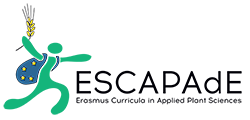English title:
Local knowledge and ethnobiology in organic farming - methods seminar
Course ID:
933334
ECTS credits:
3,0
Title in native language:
Local knowledge and ethnobiology in organic farming - methods seminar (in Eng.)
Local knowledge and ethnobiology in organic farming - methods seminar (in Eng.)
Term Semester:
Autumn/Winter
Instruction language(s):
English
Course content:
Organic farming was mainly developed by experiments and innovations of farmers and still today major developments in organic farming are advanced by organic farmers themselves. Such advances frequently stem from locally based knowledge, practice, attitudes and beliefs, which is altogether called local knowledge.
This seminar concentrates on the tools, methodologies and methods necessary for studying local knowledge. The seminar is designed along the steps of the research process - from framing the research questions, designing sampling strategies, data collection tools to data analysis – and focuses on getting practical research experiences.
The methods discussed in this course may include Cultural Domain Analysis (Freelisting, Rating, Ranking), Focus Groups, Participant observation, Social Network Analysis, Q-methodology, Quantitative ethnobiological methods, Social experiments and others.
We will use selected topics of organic farming and ethnobiology as examples for methods implementation.
This seminar concentrates on the tools, methodologies and methods necessary for studying local knowledge. The seminar is designed along the steps of the research process - from framing the research questions, designing sampling strategies, data collection tools to data analysis – and focuses on getting practical research experiences.
The methods discussed in this course may include Cultural Domain Analysis (Freelisting, Rating, Ranking), Focus Groups, Participant observation, Social Network Analysis, Q-methodology, Quantitative ethnobiological methods, Social experiments and others.
We will use selected topics of organic farming and ethnobiology as examples for methods implementation.
Expected previous knowledge:
Prior attendance of the course “Local Knowledge and Ethnobiology in Organic Farming - Introduction” (Course number 933.333) and English language skills on Master level are required. Basic knowledge about research design in social sciences is advantageous.
Learning outcomes:
Upon completion of this course the students will be able to:
• design research methodologies for investigating local knowledge;
• analyse and critically reflect upon methods selection and implementation.
• design research methodologies for investigating local knowledge;
• analyse and critically reflect upon methods selection and implementation.
Teaching and learning methods:
The seminar is separated in two parts. In the first half, work in small groups, guided discussions, readings and presentations provide the ground. In the second half, small research projects serve to get practical experience with selected methods. In the first part students read papers for preparing for the course and write short assignments; in the second part students prepare and conduct small research projects and reflect upon methods implementation.
Exam method:
Quality and timely delivery of written assignments (20%)
Quality of preparing, conducting, presenting and writing-up small research project with a special focus on methods implementation and reflection (80%)
Quality of preparing, conducting, presenting and writing-up small research project with a special focus on methods implementation and reflection (80%)
Organisation: University of Natural Resources and Life Sciences Vienna
Country:
Austria
Acronym:
BOKU
ERASMUS+ code:
A WIEN03
Teaching period summer semester:
22. Feb 2021 - 30. Sep 2021
Teaching period winter semester:
13. Oct 2020 - 21. Feb 2021
University website:
